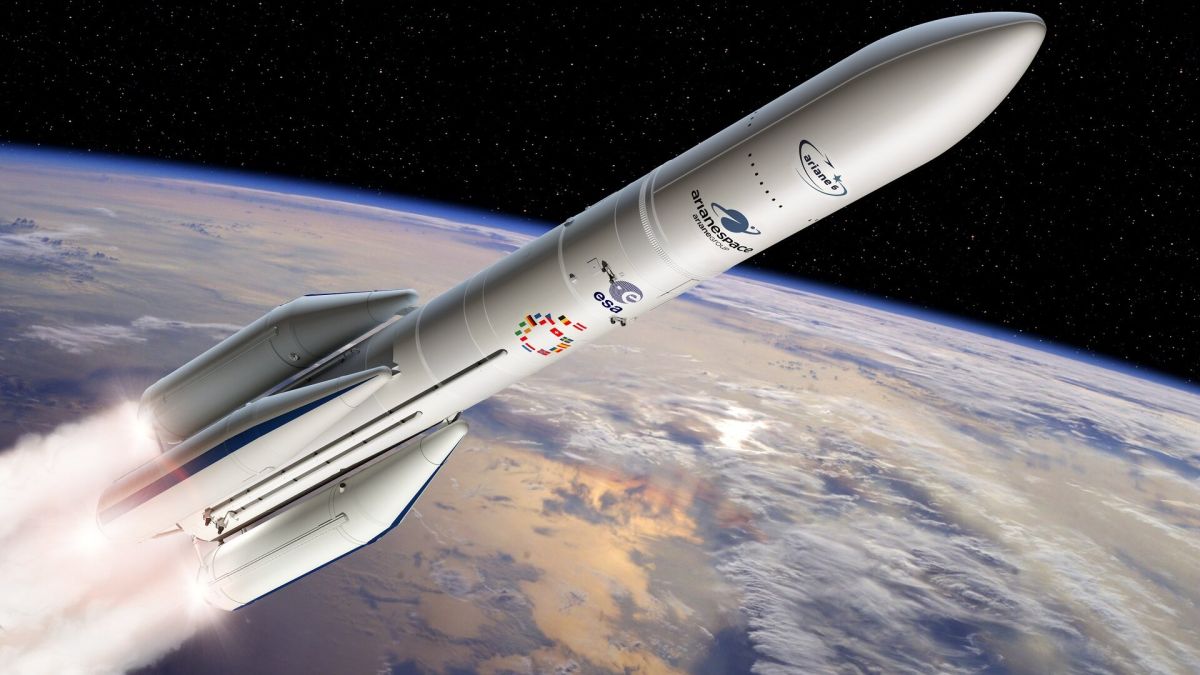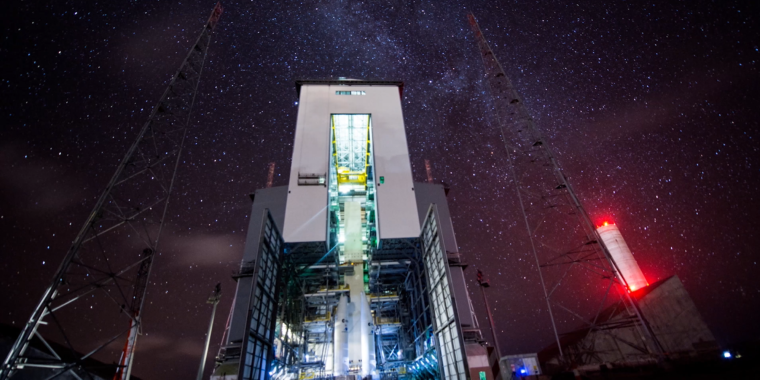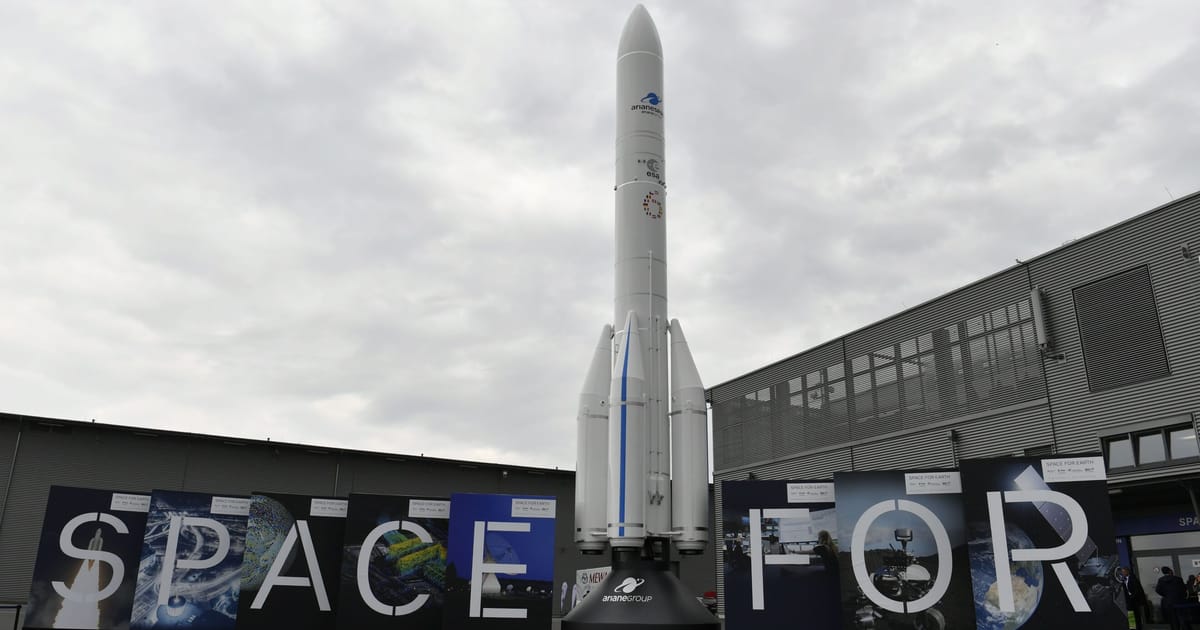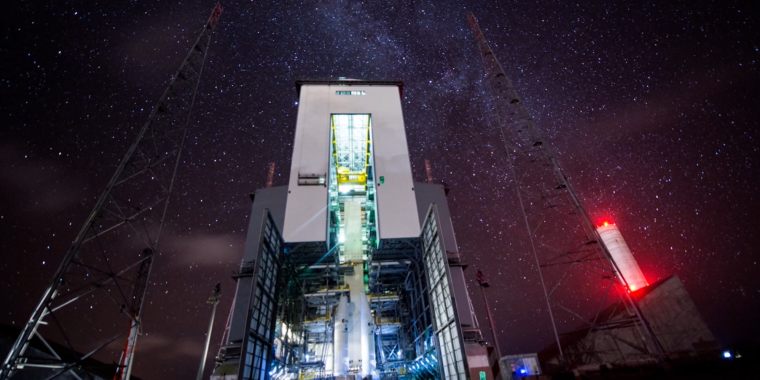1st Launch of Europe’s New Ariane 6 Rocket Slips to 2024
Europe’s highly anticipated first launch of the new Ariane 6 rocket has unfortunately encountered delays, pushing its debut to 2024. This setback comes after years of development and increasing pressure from commercial competitors like SpaceX. Let’s take a closer look at the reasons behind the delay and the implications it holds for Europe’s independent access to space.
1. Cost Pressure from SpaceX

The development of the Ariane 6 rocket was initiated in response to cost pressure from commercial upstarts like SpaceX and its highly successful Falcon 9 rocket. European ministers recognized the need for a replacement rocket for the older Ariane 5 and aimed to create a modernized version optimized for cost efficiency.
2. Parochial Politics and Management

European space policy, similar to that of the United States, is heavily influenced by parochial politics and management practices. The development and production of the Ariane 6 rocket were divided among multiple nations under the management of ArianeGroup, a large France-based conglomerate.
2.1 Slow Progress and Budget Overruns
This management approach, combining parochial politics and the traditional mindset of an aerospace company, led to sluggish progress and significant budget overruns. As a result, the expected debut launch of the Ariane 6 has been delayed and its development budget has nearly doubled to $4.4 billion.
3. Evolution of Falcon 9 Rocket

While Europe was going through the lengthy development process of the Ariane 6, SpaceX’s Falcon 9 rocket evolved rapidly. It nearly doubled its payload capacity, became partially reusable, and significantly reduced launch costs. With over 215 successful launches since Europe’s development of the Ariane 6 began, the Falcon 9 has proven to be reliable and cost-effective.
3.1 Europe’s Desire for Independent Access
Despite the advancements made by SpaceX and the delay in Ariane 6’s launch, European nations have a strong desire for independent access to space. This allows European nations to launch their military and scientific satellites without relying on other countries or organizations. Given the geopolitical events that have limited Europe’s access to the Russian Soyuz rocket, this independent access is of utmost importance.
4. Major Setback for Ariane 6

However, even with the aim of achieving independence, the Ariane 6 rocket is facing a major setback. Politico reports that the European Commission is considering purchasing launches on SpaceX’s Falcon 9 rocket due to ongoing delays with the readiness of the Ariane 6.
4.1 European Commission’s Request for Security Agreement
The European Commission plans to ask for a security agreement with the United States that would allow European satellite launches on the Falcon 9 rocket temporarily. This potential agreement highlights the current struggles and delays in the Ariane 6 program.
5. Conclusion

The first launch of Europe’s new Ariane 6 rocket slipping to 2024 is a significant setback for European space ambitions. While the desire for independent access to space remains strong, the rapid progress and cost-effectiveness of SpaceX’s Falcon 9 have presented formidable challenges. The delays and budget overruns in the Ariane 6 program highlight the need for more efficient management and a focus on innovation to compete in the commercial space industry.
FAQs (Frequently Asked Questions)

1. Will the Ariane 6 rocket ever be able to catch up to the Falcon 9 in terms of cost and capability?
While it’s challenging to predict the future, the delays and budget overruns experienced by the Ariane 6 program have put it at a significant disadvantage compared to SpaceX’s Falcon 9. However, with strategic changes and continuous innovation, Europe may still have the potential to narrow the gap.
2. How important is independent access to space for European nations?
Independent access to space holds great importance for European nations as it allows them to have control over their own satellite launches, reducing reliance on other countries and organizations. It ensures the security and autonomy of crucial military and scientific missions.
3. What are the short-term consequences of the Ariane 6 delay?
Short-term consequences of the Ariane 6 delay include European countries potentially needing to rely on other launch providers, such as SpaceX, to fulfill their immediate satellite deployment needs. This would result in additional costs and a temporary loss of independence.
4. How can Europe address the budget overruns and delays in future space projects?
Europe can address budget overruns and delays in future space projects by implementing more efficient management practices, streamlining decision-making processes, fostering innovation and competition, and maintaining closer collaboration between member nations.
5. Will the delay of the Ariane 6 affect Europe’s long-term space ambitions?
While the delay of the Ariane 6 is undoubtedly a setback, Europe’s long-term space ambitions are not completely jeopardized. It highlights the need for Europe to adapt to the evolving commercial space industry and invest in technological advancements to remain competitive.

